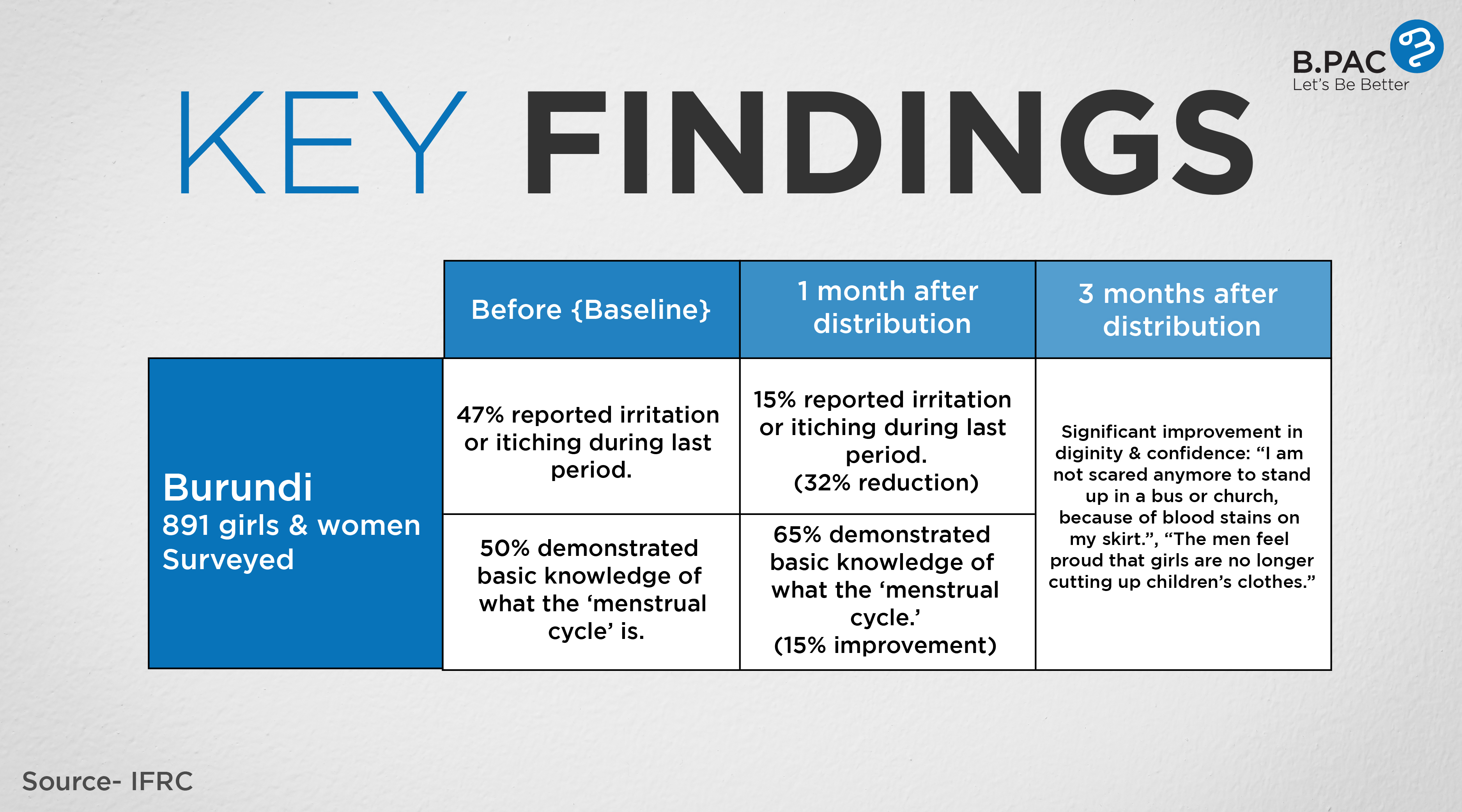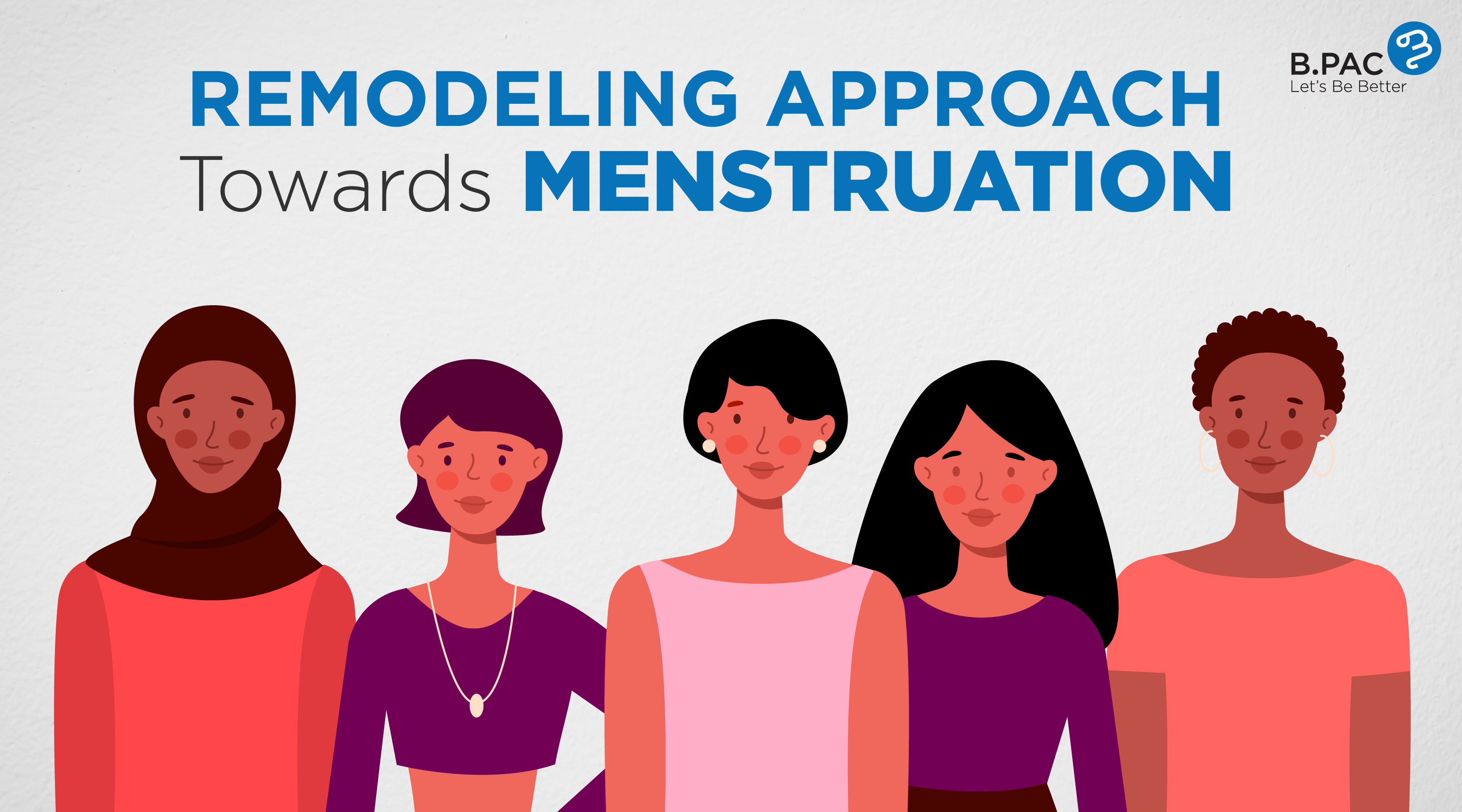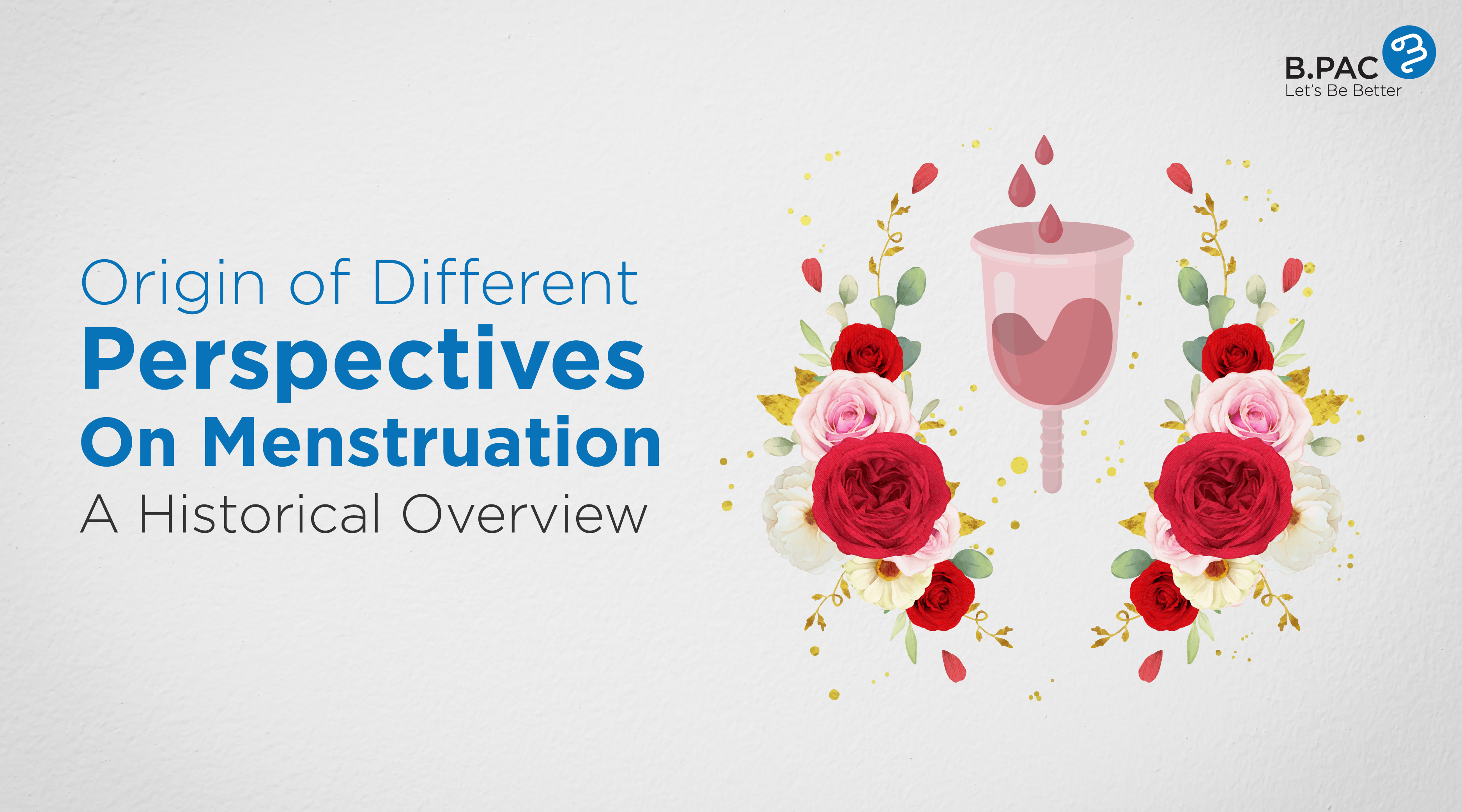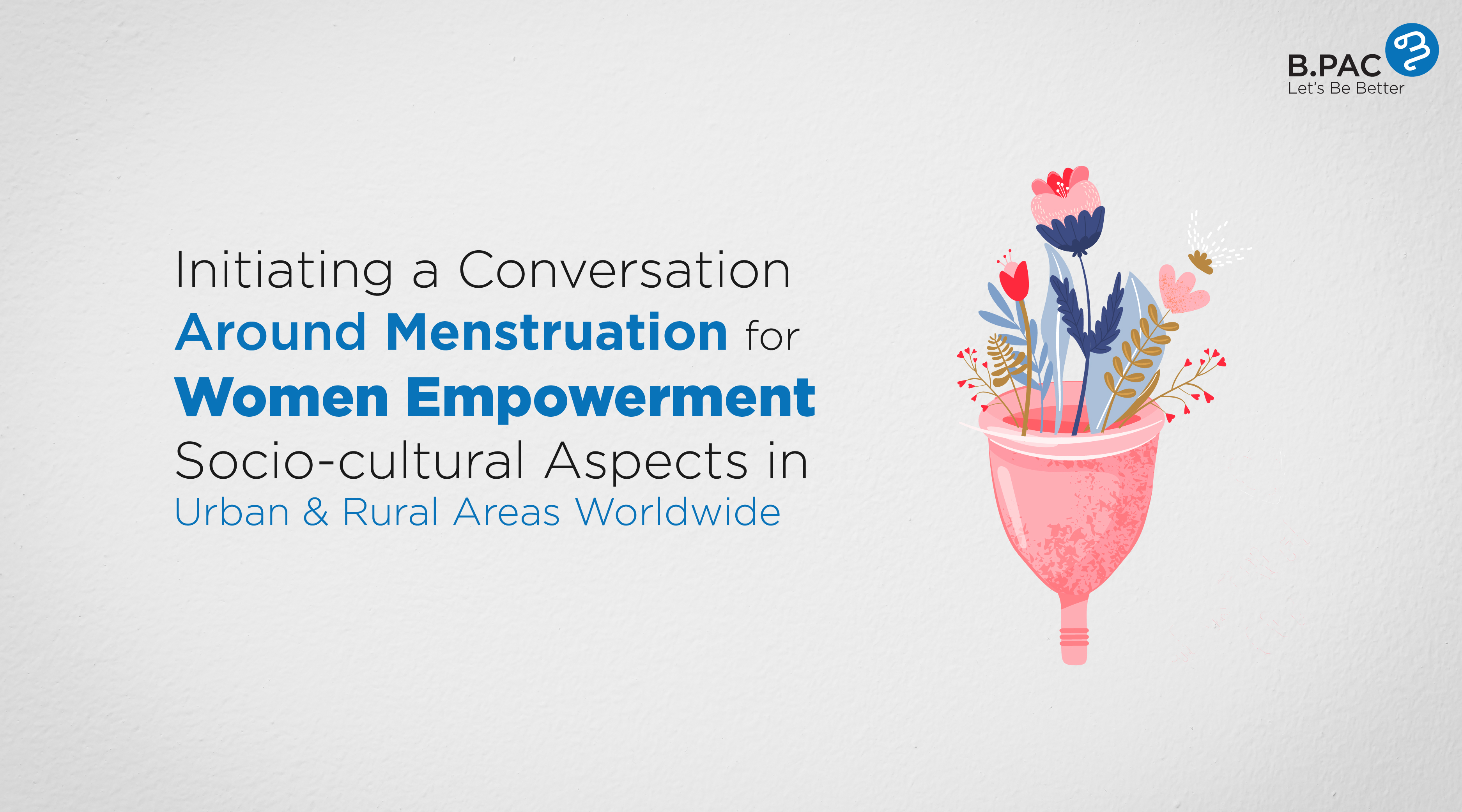May 28 is celebrated as Menstrual Hygiene Day around the world. Menstruation is one of the essential phases in the life of a woman. Despite it, menstruation is still considered taboo in many parts of India. It has become a growing concern because it has always been shrouded in misconceptions that have perpetuated over generations.
Data shows more than 50% of girls are unaware of why blood flows between their legs until they reach their menarche. The majority of girls find their periods abnormal, scary and impure, instilling feelings of shame & lowering self-confidence. Puberty sure is tough, but periods make it more challenging because as soon as they hit their menarche, they are handed lists of “things you cannot do” & “how to behave”. Relations between family members & friends too get awkward as no one talks about what is happening, and girls fight their lonely battle within themselves discreetly.
Menstruation around the world
Menstrual Hygiene Management (MHM) is a growing concern, as girls residing in Asian and African countries do not have enough access to sanitary napkins, female hygiene products, proper restrooms, etc., making them vulnerable to life-threatening diseases. In India, there are about 355 million women and menstruating girls. Out of which, only 36% of women have access to sanitary napkins. In most of the rural areas in India, women use rags & leaves instead of sanitary napkins. In the past few years, there has been an increase in the availability and usage of feminine hygiene products among Indian women. And yet, due to lack of awareness, outdated beliefs & period poverty, women resort to using less effective options to manage their menstruation. Apart from hygiene issues, women are also subjected to misconceptions & myths. In many countries, they are forced to live in a separate lodging, are not allowed to cook or touch food & are refrained from practising religious activities.
MHM in Burundi, East Africa
Here is a case study of a successful “MHM in an emergency” intervention program & operational research conducted by the International Federation of Red Cross & Red Crescent (IFRC) between 2012 – 2016. The operational research aimed to address the menstrual hygiene needs of women & girls in East African countries & highlighted the importance of appropriate facilities, safe & private spaces & hygienic menstrual practices. The research helped them have a better understanding of menstrual requirements & problems women face due to the same. The program was conducted in four countries of East Africa among 2000 women & girls. This case study shows the results of research conducted on 891 women from Burundi. Before we proceed with the case study, let us understand what MHM is.
MHM or menstrual hygiene management refers to a range of actions & intervention programs that ensure women can privately, safely & hygienically manage their menstruation with dignity & confidence. MHM initiatives are not just about distributing sanitary products or educating girls but also continuously engage and consult with women, men & children to identify barriers & socio-cultural issues persisting for generations. These protocols help to improve menstrual hygiene & ensure the MHM responses are appropriate.
The Operational research conducted ensured the delivery of the following actions
1- Distribution of MHM materials & hygiene products like sanitary napkins, tampons etc.
2- Access to private, safe & hygienic WASH facilities
3- Spreading awareness & information on menstrual hygiene
Based on consultation with women & rigorous testing to generate evidence regarding acceptance & effectiveness, IFRC came up with three different types of ‘MHM kits’: Kit A (Disposable), Kit B (Reusable/washable) & Kit C ( Both disposable & reusable). The MHM kits contained sanitary napkins, soaps, undergarments & other items to support washing, drying & disposing of the pads.
Key findings:
The results showed significant improvement in dignity, health & knowledge since the MHM intervention program. The findings highlighted the importance of appropriate facilities like safe, private spaces & washing & changing pads. Many women reported having reduced itching & irritation during their monthly periods & improvement in confidence & dignity. Less anxiety about leakage was expected, which allowed women to freely step out of the house to visit places & schools. Below is a table showing the results of the MHM program of Burundi over three months.

Remodelling the approach
Since ancient times, women have been subjected to endless trauma & discrimination because they bleed. It’s now time to change our approach & put an end to period stigma
1- Initiating Conversations:
The first step is to break the silence and initiate a conversation about menstruation to normalise it. Periods have long been a hushed-up topic that created a gap between genders, and the lack of proper information allowed people to assume things of free will. These assumptions based on half baked knowledge, fueled with ancestral ideologies, gave rise to misconceptions & myths. Initiating conversations must start at home & in schools. To improve life for girls, it is vital to make them aware of what menstruation is all about and the changes taking place in their bodies. Parents should talk more about menstruation & make their children aware before their first period, so they remain mentally prepared. Schools should also take up initiatives to create awareness & educate both girls & boys so they do not fall prey to societal taboos. Many movies & documentaries are also being made to initiate conversation & mark an end to existing misconceptions. A recent Indian documentary – Period, End Of Sentence received an Oscar, which indicates the much-shushed topic has been recognised & given legitimacy, for which women have been fighting.
2- Taboo Tackling:
Studies show changing age-old traditions & social attitude requires more than legal reforms & guidelines. Menstrual stigma is one of the primary root causes of growing gender inequity and is prevalent mainly in remote areas & villages where people still follow superstitious beliefs & rules. Spreading awareness through social media campaigns, surveys, articles, offline events, & digital advertisements are few effective ways to address the stigma & misconceptions prevailing in society. The Govt. should also take measures to abolish harmful practices which go against human rights and punish those who follow them.
3- Addressing Period Poverty:
Period poverty is one of the biggest challenges faced by women in developing countries. For too many women in Africa, access to proper restrooms & sanitary napkins are a luxury. Due to high prices & taxes of menstrual hygiene products, women go for unhealthy alternatives like pieces of cloth, twigs & wood. Many women, to avoid wastage, keep using the same sanitary napkins for more than 24 hrs. These unhealthy practices are the primary reasons for reproductive tract infections & uterus related diseases. Govt., NGOs & other local bodies must organise donations & free giveaways to the unprivileged women & girls. Govts. across the world should implement laws to subsidise sanitary napkins, ensure free access to restroom facilities & abolish luxury taxes from hygiene products.
4- Menstrual Hygiene Management
Menstrual Hygiene Management or MHM is not just related to the menstrual sanitary & hygiene aspect; it also means taking a step forward to safeguard dignity & bodily integrity. It was seen as a real victory when silence on MHM was broken in policymaking. Several activists & govt schemes are working together to prioritise MHM by introducing hygienic toilets in villages & schools, distributing free sanitary pads & soaps, providing accessible water supply & and educating young girls about the importance of sanitary practices.
5- MHM in workplaces & public areas
Corporate sectors & workplaces should empower women by initiating more conversations around menstruation. Celebrating Menstrual Hygiene Day, installing sanitary napkin dispensaries in washrooms, mandating menstrual leaves for women in office are few ways to change the approach towards menstruation. Govt. should take necessary steps to install public washrooms with hygiene products, waste bins etc.
MHM Schemes across the globe
Menstrual Health Hygiene is a growing gender inequity issue & is particularly challenging for women in developing countries where clean water & sanitation facilities are inadequate. It has been estimated that half a billion (13%) of women have little to no privacy to manage their periods and have no access to soap and water. The WASH (“water, sanitation & hygiene”) intervention programmes in schools play a crucial role in addressing MHM related issues through long term prevention & control measures to improve health, hygiene & socio-cultural aspects of menstruation. To address the growing gender inequity, many organisations and NGOs have stepped forward to work towards the same.
AFRIpads’ – An MHM initiative involves manufacturing affordable sanitary products to reduce gender inequity in schools across East Africa.
Not Just A Piece Of Cloth– An initiative in India by WASH & Goonj provides sanitary napkins & works towards spreading awareness on proper hygiene practices.
Manya Mahila Foundation– An initiative working on several verticals to empower women, including Manya Health, to provide menstrual health products to 2 million women by 2025 in India.
International Medical Corps– An organisation that supports community efforts to provide sanitation services & launched a program that offers schoolgirls with reusable sanitary napkins in Zimbabwe.
Human Rights Watch– An independent international organisation that works to uphold human dignity & supports WASH & MHM through human rights lens.
Take Away
The previous blogs & the above information clearly show the necessity to eradicate the shame & stigma associated with menstruation. The rooted silence & secrecy around periods is the leading cause of miseries and has permeated every aspect of society, nurturing superstitions and taboos passed on between generations. Ending the silence on menstruation is essential for women & girls to reach & exercise their full potential. Today we talk about women empowerment, but how can we empower women without accepting every bit of them? This Menstrual hygiene day, let us pledge to get more involved & break the silence to destigmatize menstruation.





